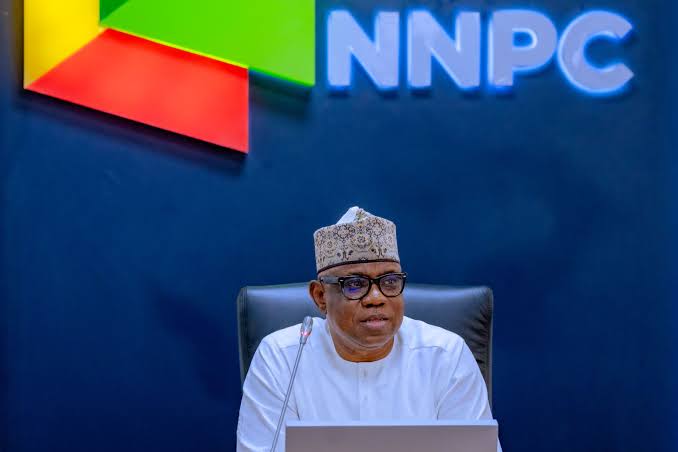**Dollar Abundance, Naira Discipline: Nigeria’s New Currency Paradox**

By Bamidele Atoyebi
A notable transformation is occurring in Nigeria’s financial and monetary systems. While access to U.S. dollars is increasing through official banking channels, the naira is paradoxically becoming less available. Though this situation may seem concerning, it could represent the onset of a more strategic and stabilizing economic environment.
Reports from financial institutions and the Central Bank of Nigeria (CBN) indicate that foreign exchange availability has improved under Governor Olayemi Cardoso. After unifying foreign exchange windows and implementing a floating exchange rate in 2023, the CBN successfully addressed over $7 billion in outstanding FX backlogs, thereby boosting confidence in the forex market and making it easier to obtain U.S. dollars for legitimate expenses like education, healthcare, and trade.
In contrast, physical cash transactions in naira are becoming increasingly difficult. Many banks are either rationing cash or limiting ATM withdrawals, leading the CBN’s Q1 2025 Monetary Report to reveal a 14.3% decline in currency circulation, attributed to monetary tightening, increased digital banking, and the lingering impacts of the 2023 naira redesign initiative from the previous government.
Paradoxically, this cash scarcity has enhanced the perceived value of the naira. From a behavioral economics standpoint, scarcity tends to inspire more responsible financial habits. Many Nigerians are now spending more conservatively, turning to digital payment methods, and reevaluating their cash usage. What was initially perceived as a cash crisis is gradually reshaping the way money is valued and managed.
This evolving dynamic echoes the vision articulated by Professor Charles Soludo, former CBN Governor and current Anambra State Governor, who imagined a Nigeria where U.S. dollars would be so accessible that even average citizens could buy snacks with them. While this may have been meant metaphorically, it reflects a desire for economic fluidity and modernization, where Nigerians can seamlessly engage with both local and foreign currencies within a regulated framework.
Indeed, the relevance of Soludo’s comment is heightened today; the average Nigerian now finds acquiring U.S. dollars easier than accessing naira, highlighting a shift in policy rather than a failure. This scarcity has led to more cautious use of the naira, subtly inflating its perceived value. People instinctively value what is scarce, a principle observable in consumer trends, social behaviors, and now in currency usage. Historical examples demonstrate that individuals often invest their last resources in hard-to-obtain items.
This concept is illustrated in the biblical story of Joseph, where famine drove Jacob to send his sons to Egypt for grain, making Egypt a focal point for trade and survival due to its scarcity of food. A similar trend may be emerging in Nigeria, where those controlling currency availability, even local cash, begin to shape broader behavioral and policy patterns.
President Bola Ahmed Tinubu’s administration is in a position to realize elements of this vision. In its inaugural year, the administration has implemented significant reforms, including deregulating the foreign exchange market, ending long-standing fuel subsidies, and taking steps to enhance fiscal discipline and attract foreign investment. If this trend continues, Nigeria could evolve into a hybrid monetary environment where dollars cater to international trade while the naira is regarded as a more disciplined and valued domestic currency.
Nonetheless, there are valid concerns about increasing dollarization threatening national currency sovereignty and creating reliance on foreign exchange. However, examples from countries like the United Arab Emirates, Singapore, and Ghana (in certain sectors) suggest that with credible and consistently enforced policy frameworks, foreign currency availability can coexist alongside strong local currencies.
The delicate balance remains. Excessive scarcity might lead to hoarding, inflationary pressures in the informal economy, and negative impacts on vulnerable groups. Therefore, the CBN must manage liquidity carefully, ensuring that naira supply is sufficiently tight to maintain value but not so restricted that it hampers commerce or excludes the unbanked.
Nigeria’s larger challenge lies in creating a currency system that is both adaptable and purposeful, integrating digital innovation, monetary discipline, and public confidence. The aim should not be to replace the naira but to enhance its value while utilizing dollar access to boost global competitiveness.
If the Tinubu administration continues on this reform trajectory, Nigeria could cultivate a dual-currency system characterized by accessibility, transparency, and renewed confidence. It is a delicate balance, but if maintained, it could positively transform Nigeria’s currency culture.
Ultimately, economic authority isn’t solely based on abundance; sometimes, it resides in what is rare yet held in high regard.
Bamidele Atoyebi, the Convenor of the BAT Ideological Group, focuses on accountability and policy oversight while also working as a social worker, criminologist, maritime administrator, and philanthropist. He sent this message from Abuja.






